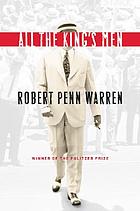 Stacks E748.D6 L37 2011
Stacks E748.D6 L37 2011Recommended by Colleen Lougen, Librarian
 Stacks E748.D6 L37 2011
Stacks E748.D6 L37 2011In this collection of essays Chuck Klosterman explores popular culture as experienced by people coming of age in the 1980s and 1990s. For the rest of us, he gives insight into the ways in which who we are in reality is often only a reflection of who we are in popular culture.
Along the way he touches upon how, ultimately, no one is able to find real love because of John Cusack; how the Real World changed from being a sample of the youth of America to unintentionally creating the youth of America; the realization that Pamela Anderson, like Marilyn Monroe before her, is the sex symbol for our time largely because times change; that the 1980s rivalry between the Celtics and the Lakers represents not just race in American but “absolutely everything” about America; the fact that Saved by the Bell is an explanation of all things Generation X; and the relationships between the apocalyptic, Christian theology of the Left Behind series and NFL football and “America’s insipid Oprah Culture”—plus much more.
His irreverent and uniquely skewed take on such things may produce a chuckle but, ultimately, he delivers the ideal in criticism: it is less about a specific artifact and more about the culture itself.

Manguel is a prolific author, translator and anthologist whose interests range from art appreciation to classics to mystery. Magic Land of Toys, however, is really a picture book. Manguel collaborates with photographer Michel Pintado, set designer Jean Haas and (the real star of the show) the toy collection of the Paris Musee des Arts Decoratifs to present a series of vignettes that conjure our childhood playrooms.
The cinematically-rendered images of the toys, posed --sometimes suggestively-- in mid-action, provoke us to reflect on play, collectables, childhood and age-old questions like Are toys really alive? and What do our toys do when we’re not around? While the scenes speak vivdly by themselves, Manguel’s insightful texts comment on memory, identity, lost toys, and the importance of imagination. This is a splendid source of introspection and nostalgia. It also makes a great game of I Spy.

Is there a title that you think the STL should own? Complete the Book Purchase Request form.